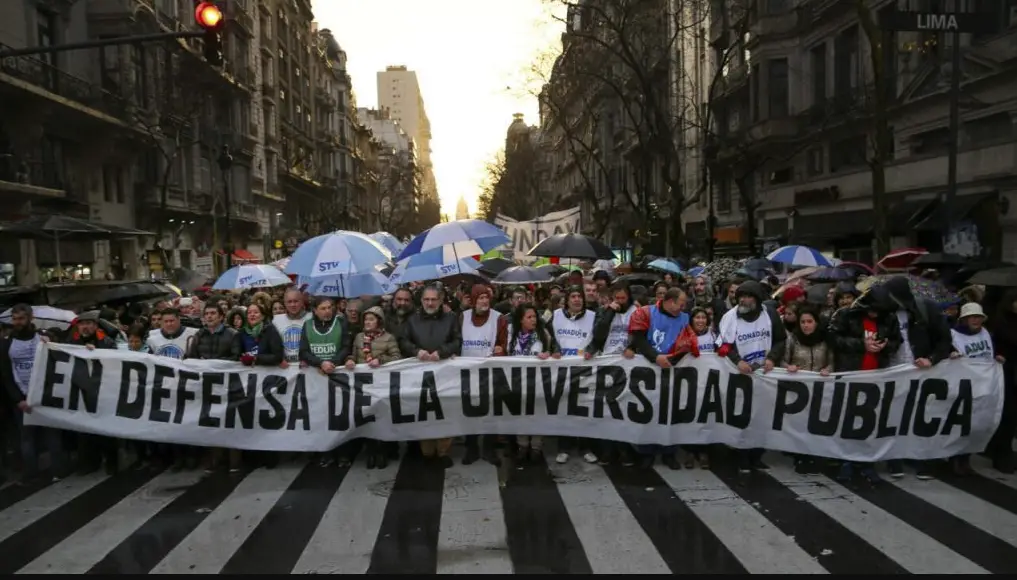Under the government of Javier Milei, Argentine universities have suffered budget cuts of nearly 30%, and faculty salaries have fallen by more than 20%. In Mexico, university cuts in 2025 are reaching over 32%, the highest in the past ten years. At the same time, a deputy from Morena, the ruling party, has proposed a bill that would eliminate the thesis requirement for graduation. In Colombia, the former Deputy Minister of Creativity faces charges of falsifying a master’s degree to obtain the post, recalling many similar but unpunished cases, such as that of a Mexican Supreme Court minister who plagiarized her thesis. What do these cases have in common? They reflect the crises facing universities today. In other circumstances, cuts to universities would have been unthinkable and strongly opposed, fraud to obtain a degree would have been condemned by politicians and universities alike, and no one would question the value of a thesis. Today, however, many people are likely to support such practices, minimize them, or directly justify them.
External attacks
Since the early 20th century, state-funded universities in Latin America have been expected to cooperate with national development policies. The logic assumed that more graduates would accelerate development capacities across all sectors. At first, this was the case, but universities became victims of their own success. By the second half of the century, massification had set in. In submitting to this dynamic, they ceded part of their autonomy, and governments were forced to increase budgets year after year to sustain it —a process that gradually eroded their scientific, humanistic, and educational goals. But neoliberalism, dominant in the region since the 1980s and even more so in the 21st century, did not strip them of this burden; it conditioned them. Universities no longer respond to state-driven development needs but to market demands. They ceased to be seen as a long-term investment and instead became a government burden, with quality education and scientific development pushed to the background.
Today, universities are required to justify their programs not in terms of advancing universal knowledge but of meeting labor market needs. They are treated as training centers and diploma dispensers. Academic requirements have been reduced; degree programs must not last long—shorter is better. The thesis has lost its value as a measure of intellectual achievement: “Who’s going to read it?” Degree requirements have been loosened through standardized exit exams, symbols of mediocrity designed to make things easier rather than more demanding. With reduced time and requirements, graduates are quickly ready to be exploited—or worse, not employed at all, as universities churn out an army of subspecialists whose diplomas no longer reflect intellectual effort. It is not uncommon for politicians, in particular, to collect degrees without acquiring knowledge, hence the tolerance for plagiarism or fraudulent practices. Even prestigious private universities that once resisted state pressures have also yielded to market logic and now compete in the business of offering easy-to-obtain degrees.
Internal suffocation
Universities are not “ivory towers,” a myth often repeated; the reality is quite the opposite. Under market pressures, faculty—once the backbone of higher education—have been displaced by students. Yet both are now reduced to mere economic agents of the system: professors as “facilitators” and students as “clients” to whom education must be tailored. Merit has been confused with privilege, rigor with indulgence. And while each new generation of students continues to inject vitality into universities by posing new challenges and introducing fresh agendas, their natural drive to question the status quo is being stifled under market dynamics.
Today, university prestige no longer comes from producing knowledge or ensuring its quality, but from market-oriented indicators. This dynamic has forced universities to exploit faculty, reducing them to instruments of the system. Professors now spend more time on bureaucratic tasks than on teaching or research. They meet teaching hours but rarely inspire or guide. “Academic life” is consumed by endless evaluations and redundant paperwork required by multiple agencies, leaving little room for scientific research.
The reduction of research funding, low salaries, meager pensions, and insufficient positions for new generations (a massive problem in itself) add to universities’ nature as large organizations, generating an internal political dynamic that often goes unnoticed. Power struggles inside universities are fierce. Influence groups, often with poor academic credentials, monopolize leadership positions, distribute scarce resources among allies, foster nepotism, and perpetuate servitude. The problem deepens when these groups forge ties with political parties. For many “academics,” a bureaucratic university career is their only raison d’être, leaving genuine scholars under the yoke of mediocre leadership. Market dynamics have also filled universities with individuals who pose as “professors” without true vocation, treating academia as a prestigious hobby rather than a calling.
What is the future of the university?
In a world where several billionaires dropped out of college to build tech companies, and where in Latin America popular culture glorifies the easy money of illicit activities, it may seem that universities are in decline. But their mission is not to generate wealth, but to preserve and transmit humanity’s knowledge. Their role is to expand intellectual capacities, not merely train workers for the labor market. If university degrees were worthless, no one would commit fraud to obtain them. Universities are the only places where study and research can be carried out freely, where problems can be analyzed and solutions to transform the world can be envisioned. Their values and importance are intangible, and precisely because of this, they must be preserved to continue fulfilling their mission while being reformed without losing their essence.
*Machine translation, proofread by Ricardo Aceves














